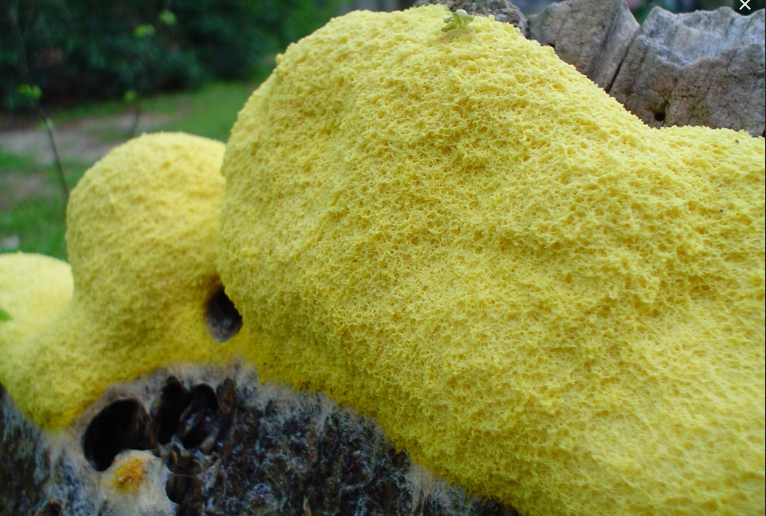Slime mold is a fungus-like organism that has certain properties and therefore included in the roofs of the kingdom.
Slime Mold On Grass
The mucus template consists of a large amount of cytoplasm covered with the plasma membrane and the mucus layer. The cell wall does not exist, the naked cytoplasm contains many nuclei, and is similar to egg white. The cytoplasm consists of external plasma and internal plasma.
Slime mold called Plasmodium. It grows in a cool, wet place and produces many false. Helps distort bone movement. Bacteria and other food particles absorbed through the pseudopod. It also contains food gaps in the cytoplasm.

Slime Molds Characteristics
Life cycle of slime mold
The slime mold life cycle shows two forms of shorthand:
(I) asexual reproduction (ii) sexual reproduction
Asexual reproduction
In slime molds, asexual reproduction occurs from sporangia. Also called the fruiting body. This sporangia produced on small legs. Small sporangia, like golf balls. May be different colors.
In sporangia, many spores produced by meiosis, so they are monosomal spores. These spores released from sporangia and spread to various places by wind or rain.
Spore germination
Slime mold spores germinate on soil, leaves, or wood. Many of them produce two types of structures.
(i)SWARM SPORES
(ii) MYXAMOEBAE
Enumerate cells
Each spore produces slime mold from one to four small colonial cells as spindles. These swarms are double whip. One short whip and one long whip, containing only one core.
Fungi
Occasionally, mold spores produce slime from one to four amoeba cells, called Myxomycetes. Its usually produced in dry conditions. It may split again to form several slime molds.
Sexual Reproduction
Cluster cells from mucous mold and mucous rot may act as gametes and participate in sexual reproduction. The back end of the cell group merges and forms the zygote. Likewise, the crowd worm family may merge together to form a fertilized egg. Zygote is a dual core, and the two nuclei merge to form a two chromosome nucleus.
The dizygotic nucleus forms many nuclei through mitotic division. The zygote develops into a small mud mold (Plasmodium) and gradually turns into a new Plasmodium.
black slime mold on grass
white slime mold on grass
slime mold on grass harmful to humans
You Might Also Like:
- Difference Between Photosynthesis and Respiration
- Nostoc structure: important and reproduction
- Biological Science: Different Fields of Biology